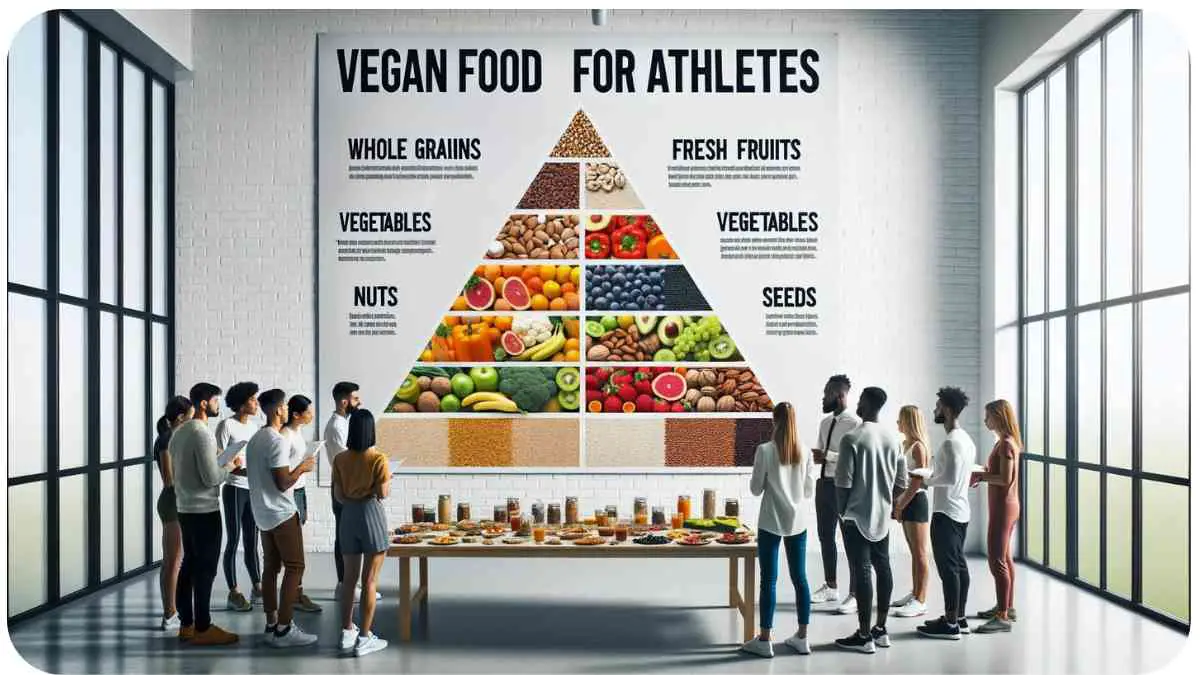Welcome to the world of plant-powered athleticism! If you’re an athlete considering or already following a vegan diet, you’re in the right place. In this comprehensive guide, we’ll explore the Vegan Food Pyramid tailored to meet the unique needs of athletes. I’ve combined my experience as a nutritionist and my own journey as a vegan athlete to provide you with practical insights and expert advice.
So, let’s lace up our running shoes and dive into the world of understanding the Vegan Food Pyramid for Athletes.
| Takeaways |
|---|
| 1. Vegan diets can benefit athletes by promoting cardiovascular health, improving recovery, and supporting weight management. |
| 2. The Vegan Food Pyramid for Athletes emphasizes plant-based staples, macronutrient balance, and micronutrient awareness. |
| 3. Plant-based staples include whole grains, legumes, fruits, vegetables, nuts, and seeds, forming the foundation of a vegan athlete’s diet. |
| 4. Balancing macronutrients, including carbohydrates, proteins, and healthy fats, is crucial for energy and muscle recovery. |
| 5. Pay attention to essential micronutrients like iron, calcium, vitamin B12, and omega-3 fatty acids to ensure overall health. |
| 6. Proper hydration and electrolyte balance are vital during and after workouts to optimize performance. |
| 7. Consider supplements like vegan protein, vitamin D, and creatine when necessary to meet specific nutritional needs. |
| 8. Meal planning, variety, and portion control play essential roles in maintaining a balanced and enjoyable vegan diet. |
| 9. Address common concerns like caloric intake, digestive challenges, and social aspects of veganism proactively. |
| 10. Draw inspiration from successful vegan athletes who have thrived in their respective sports while following plant-based diets. |
| 11. Your choice to embrace a vegan diet can have a positive impact on your health, the environment, and animal welfare. |
2. What Is a Vegan Diet?
Before we delve into specifics, let’s clarify what a vegan diet entails. A vegan diet is entirely plant-based, excluding all animal products like meat, dairy, eggs, and even honey. Instead, it focuses on foods like fruits, vegetables, grains, legumes, nuts, and seeds. Veganism extends beyond diet; it’s a lifestyle choice rooted in ethics, environmental awareness, and health.
In today’s world, the importance of a plant-based diet is undeniable. Research shows that adopting a vegan lifestyle not only benefits our health but also the environment. Understanding the vegan food pyramid for athletes is a crucial step towards reaping these advantages
As a vegan athlete, your goal is to harness the power of plants to optimize your athletic performance and overall well-being.
3. The Vegan Food Pyramid: A Brief Overview
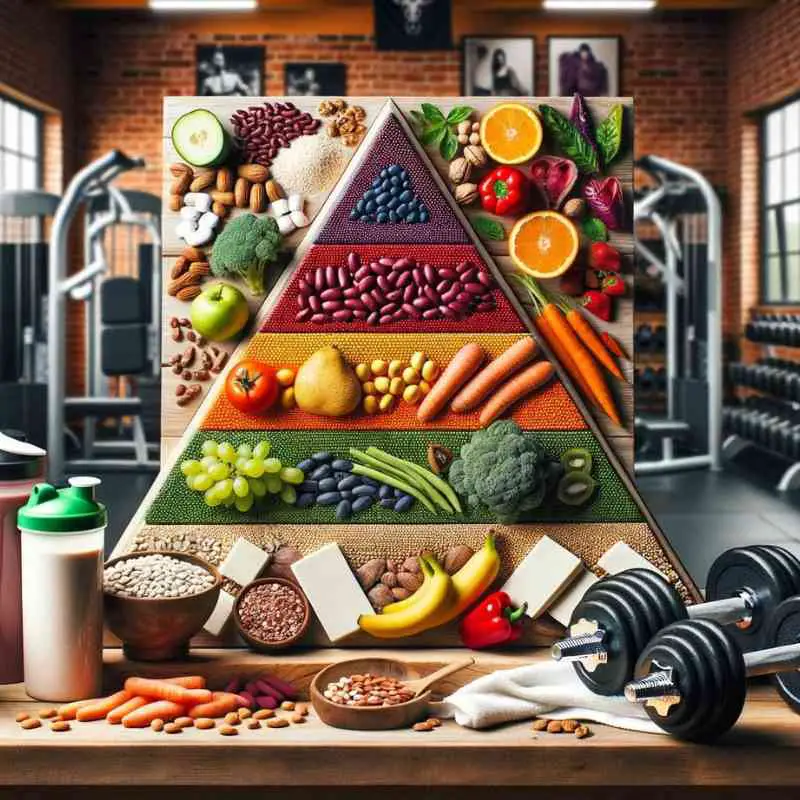
The Vegan Food Pyramid, similar to the traditional food pyramid, serves as a visual guide to building a balanced diet. It highlights essential food groups and their recommended proportions. For athletes, this pyramid takes on a unique shape and emphasizes specific nutritional needs.
At its core, the Vegan Food Pyramid for Athletes is about:
- Plant-Based Staples: The foundation, comprising whole grains, legumes, fruits, and vegetables.
- Macronutrients: Ensuring an adequate intake of carbohydrates, proteins, and fats.
- Micronutrients: Paying attention to iron, calcium, vitamin B12, and omega-3 fatty acids.
- Hydration: Maintaining proper fluid balance.
- Supplements: When necessary, to fill potential nutrient gaps.
- Meal Planning: Crafting well-balanced, nutrient-dense meals.
- Addressing Concerns: Tackling common challenges faced by vegan athletes.
Throughout this guide, we’ll explore each of these aspects in detail, providing you with the knowledge and tools to excel on a vegan diet.
4. Why Choose a Vegan Diet as an Athlete?
Now, you might be wondering why you should consider a vegan diet as an athlete. The decision to go vegan can have a profound impact on your athletic performance, health, and the environment. Let’s explore some compelling reasons:
- Improved Cardiovascular Health: A well-balanced vegan diet can lead to lower cholesterol levels and reduced risk of heart disease, which is crucial for athletes seeking optimal cardiovascular performance.
- Enhanced Recovery: Vegan diets are rich in antioxidants and anti-inflammatory compounds found in fruits and vegetables. This can accelerate post-workout recovery and reduce muscle soreness.
- Lean and Sustainable Protein Sources: Plant-based protein sources like legumes, tofu, and tempeh are typically lower in saturated fats and can help maintain lean muscle mass.
- Environmental Consciousness: By choosing a vegan diet, you’re reducing your carbon footprint and contributing to a more sustainable planet—an essential consideration in today’s world.
- Ethical Reasons: Many athletes opt for veganism to align their dietary choices with their ethical beliefs regarding animal welfare.
- Weight Management: A well-planned vegan diet can support weight management and body composition goals.
As a vegan athlete, I’ve personally experienced these benefits in my journey. However, it’s essential to approach a vegan diet with a well-informed and balanced perspective. To thrive as a vegan athlete, you need to pay special attention to what you eat and ensure you’re meeting your nutritional needs.
Delve into the science behind the vegan movement to appreciate how a plant-based diet can enhance your well-being. The insights presented in ‘The Health Benefits of a Vegan Diet: The Science Behind It All’ reveal the potential of veganism for athletes striving for peak performance.”
5. Building the Foundation: Plant-Based Staples
The foundation of the Vegan Food Pyramid for Athletes is built on plant-based staples. These are the foods that should form the majority of your diet. Here’s a table to highlight some essential plant-based staples:
Table 1: Essential Plant-Based Staples
| Food Group | Examples |
| Whole Grains | Brown rice, quinoa, oats |
| Legumes | Lentils, chickpeas, black beans |
| Fruits | Apples, bananas, berries |
| Vegetables | Kale, spinach, broccoli |
| Nuts and Seeds | Almonds, chia seeds, flaxseeds |
These staples provide the energy, fiber, vitamins, and minerals your body needs to fuel your workouts and daily activities. They’re the building blocks of a healthy vegan athlete’s diet. Incorporate a variety of these foods into your meals to ensure you’re getting a wide range of nutrients.
In the next section, we’ll dive deeper into macronutrients and their significance in your athletic journey.
6. The Importance of Macronutrients
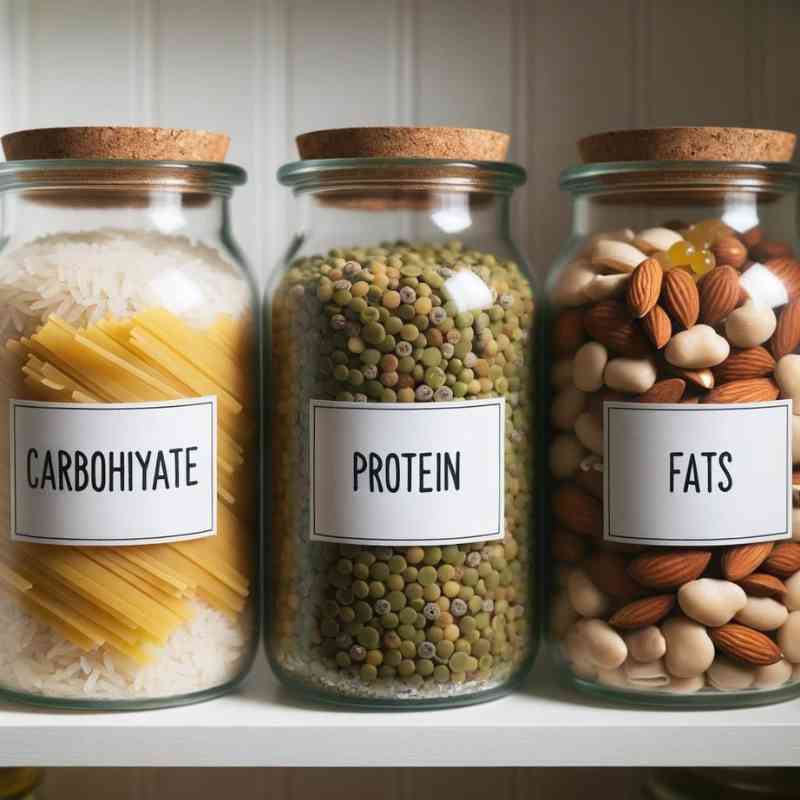
Macronutrients are the nutrients your body requires in large quantities to function properly. As an athlete, understanding how to balance macronutrients in your vegan diet is crucial for energy, muscle recovery, and overall performance. Let’s explore each macronutrient category in detail.
Are you an athlete curious about how to maintain your fitness on a vegan diet? ‘Veganism and Fitness: How to Get the Protein You Need’ provides actionable tips on meeting your protein needs while following the vegan food pyramid.
6.1 Carbohydrates for Energy
Carbohydrates are your body’s primary source of energy, especially during physical activities. Contrary to some misconceptions, vegan diets can provide ample carbohydrates. Here’s a table with some vegan sources of carbohydrates:
Table 2: Vegan Sources of Carbohydrates
| Food | Carbohydrate Content (per 100g) |
| Sweet Potatoes | 20.1g |
| Quinoa | 21.3g |
| Brown Rice | 22.9g |
| Oats | 66.3g |
| Bananas | 22.8g |
Incorporate these carbohydrate-rich foods into your meals, especially before workouts, to ensure you have the energy needed to perform at your best.
6.2 Protein for Muscle Recovery
Protein is essential for repairing and building muscle tissue, a critical aspect of an athlete’s diet. Vegan sources of protein can be just as effective as animal-based sources. Here’s a table with high-protein vegan foods:
Table 3: High-Protein Vegan Foods
| Food | Protein Content (per 100g) |
| Tofu | 8.2g |
| Lentils | 9.0g |
| Chickpeas | 8.9g |
| Tempeh | 19.2g |
| Almonds | 21.1g |
Include these protein-rich foods in your meals to support muscle recovery and growth.
6.3 Healthy Fats for Optimal Performance
Don’t shy away from fats; they play a vital role in overall health and athletic performance. Healthy fats, such as those found in avocados, nuts, and seeds, provide sustained energy and help absorb fat-soluble vitamins. Here’s a table of sources of healthy fats in a vegan diet:
Building muscle on a plant-based diet is not only possible but highly effective. Discover the secrets of plant-powered strength in ‘The Ultimate Vegan Fitness Guide: How to Build Muscle on a Plant-Based Diet’ and learn how to optimize your athletic performance as a vegan athlete.
Table 4: Sources of Healthy Fats in a Vegan Diet
| Food | Healthy Fat Content (per 100g) |
| Avocado | 14.7g |
| Almonds | 49.4g |
| Chia Seeds | 30.7g |
| Flaxseeds | 42.2g |
| Olive Oil (for cooking) | 100g |
Including these healthy fats in your meals can enhance your energy levels and overall performance.
Understanding how to balance these macronutrients is a key step in optimizing your vegan diet for athletic success. In the next section, we’ll explore micronutrients, which are equally important for your health and performance.
7. Micronutrients: Key Nutrients for Athletes
While macronutrients provide the energy and building blocks for your body, micronutrients are essential for various physiological processes. Vegan athletes need to pay special attention to certain micronutrients to ensure they meet their nutritional needs. Let’s delve into these vital nutrients.
7.1 Iron for Oxygen Transport
Iron is crucial for transporting oxygen in the blood, which is essential for athletic performance. Vegan sources of iron can be highly effective. Here’s a table highlighting iron-rich vegan foods:
Table 5: Iron-Rich Vegan Foods
| Food | Iron Content (per 100g) |
| Spinach | 2.7mg |
| Lentils | 3.3mg |
| Tofu | 2.7mg |
| Pumpkin Seeds | 15.3mg |
| Quinoa | 4.6mg |
Ensure you include these iron-rich foods in your diet to maintain optimal oxygen transport to your muscles.
7.2 Calcium for Bone Health
Maintaining strong bones is crucial for athletes. Calcium plays a significant role in bone health. Here’s a table of vegan sources of calcium:
Fuel your athletic journey with the right sources of plant-based protein. ‘Get Your Protein Fix with These Vegan Power Foods’ offers a comprehensive list of protein-packed vegan options to support your fitness goals while following the vegan food pyramid for athletes.
Table 6: Vegan Sources of Calcium
| Food | Calcium Content (per 100g) |
| Collard Greens | 232mg |
| Fortified Plant Milk | 120mg |
| Almonds | 264mg |
| Tofu (calcium-set) | 350mg |
| Chia Seeds | 631mg |
Incorporating these calcium-rich foods into your diet can help support bone health and prevent injuries.
7.3 Vitamin B12 for Nerve Function
Vitamin B12 is essential for nerve function and overall health. As it’s primarily found in animal products, vegans may need to rely on supplements or fortified foods. Here’s a table on meeting vitamin B12 needs on a vegan diet:
Table 7: Meeting Vitamin B12 Needs on a Vegan Diet
| Source | Vitamin B12 Content (per serving) |
| Fortified Nutritional Yeast | Varies by brand |
| Fortified Plant Milk | Varies by brand |
| Vitamin B12 Supplements | Varies by dosage |
| Fortified Cereals | Varies by brand |
| Vegan B12-Fortified Foods | Varies by product |
Ensuring an adequate intake of vitamin B12 is crucial for maintaining nerve function and overall well-being.
7.4 Omega-3 Fatty Acids for Joint Health
Omega-3 fatty acids are known for their anti-inflammatory properties, making them beneficial for athletes. Vegan sources of omega-3s are abundant. Here’s a table with vegan omega-3 sources:
Table 8: Vegan Omega-3 Sources
| Source | Omega-3 Content (per serving) |
| Chia Seeds | 4.9g |
| Flaxseeds | 22.8g |
| Walnuts | 9.1g |
| Hemp Seeds | 2.7g |
| Algal Oil Supplements | Varies by brand |
Including these omega-3-rich foods in your diet can help reduce inflammation and support joint health, crucial for athletic longevity.
By paying attention to these micronutrients, you can maintain optimal health and performance on a vegan diet. In the next section, we’ll explore hydration and electrolyte balance for athletes.
8. Hydration and Electrolyte Balance
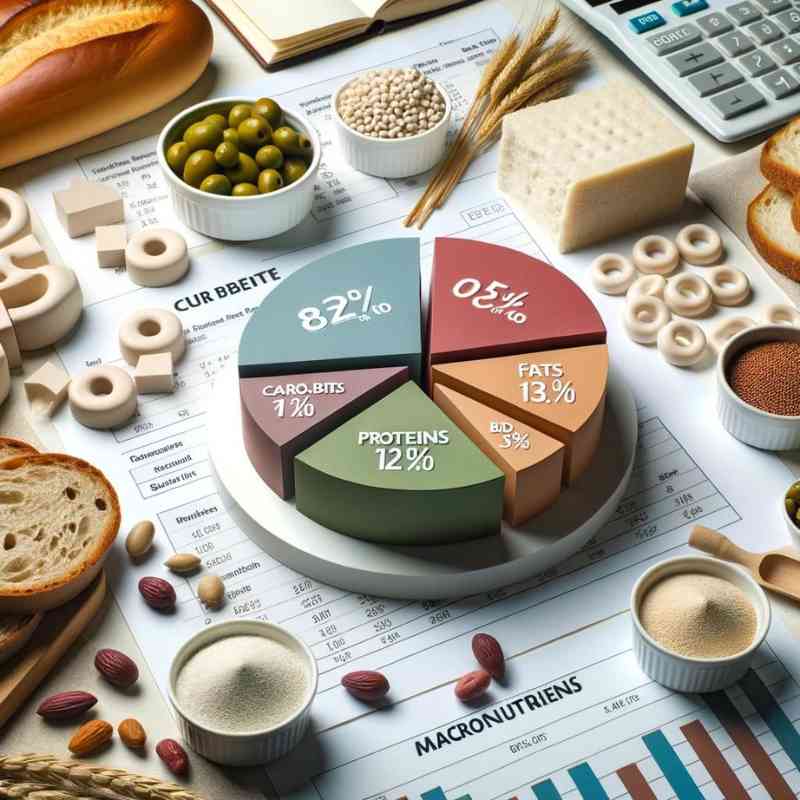
Proper hydration and electrolyte balance are paramount for athletic performance. Even though water is not a micronutrient, it’s essential to discuss its significance. Dehydration can lead to a decrease in athletic performance and an increased risk of injury.
Here are some key considerations for hydration:
- Pre-Exercise Hydration: Start your workout well-hydrated. Drink water throughout the day leading up to your training or competition.
- During Exercise: Depending on the duration and intensity of your activity, you may need to consume water or a sports drink with electrolytes to stay hydrated and maintain electrolyte balance.
- Post-Exercise Rehydration: After working out, replenish lost fluids. Water, coconut water, or a vegan sports drink can help restore your electrolyte balance.
Electrolytes, such as sodium, potassium, and magnesium, play vital roles in muscle function and maintaining fluid balance. You can find electrolytes in various vegan foods, such as:
- Bananas (potassium)
- Nuts and seeds (magnesium)
- Avocado (potassium)
- Spinach (magnesium)
Remember to tailor your hydration strategy to your individual needs and the conditions of your workouts. Staying properly hydrated will help you perform at your best and reduce the risk of heat-related illnesses.
In the next section, we’ll discuss pre-workout and post-workout nutrition for vegan athletes.
9. Pre-Workout and Post-Workout Nutrition
Your nutrition before and after workouts can significantly impact your performance and recovery. As a vegan athlete, it’s crucial to fuel your body adequately. Let’s dive into pre-workout and post-workout nutrition strategies.
9.1 Pre-Workout Fuel
Before hitting the gym or the track, you need to provide your body with the right fuel. Here’s a table with some vegan pre-workout snacks:
Table 9: Vegan Pre-Workout Snacks
| Snack | Why it’s Great |
| Banana with almond butter | Provides carbohydrates and healthy fats |
| Whole grain toast with avocado | Offers sustained energy from carbs and fats |
| Energy bars (check labels for vegan options) | Convenient source of carbs and protein |
| Overnight oats with berries | Complex carbs and antioxidants for energy |
These snacks will help boost your energy levels and keep you going during your workout.
9.2 Post-Workout Recovery
After your workout, your body needs nutrients to recover and repair. Here’s a table with some ideas for post-workout vegan meals:
Table 10: Post-Workout Vegan Meals
| Meal | Why it’s Great |
| Quinoa and vegetable stir-fry | Provides protein and carbohydrates for recovery |
| Chickpea salad with greens | High in protein and fiber for muscle repair |
| Tofu and vegetable curry with brown rice | Balanced meal with protein and complex carbs |
| Vegan protein smoothie | Quick and easy source of protein, carbs, and nutrients |
These post-workout meals will aid in muscle recovery, reduce soreness, and prepare your body for the next training session.
By paying attention to your pre-workout and post-workout nutrition, you can optimize your athletic performance and minimize the risk of injuries. In the next section, we’ll explore the role of supplements for vegan athletes.
10. Supplements for Vegan Athletes
While a well-planned vegan diet can provide most of the nutrients you need, some supplements can be beneficial to ensure you’re meeting your requirements as an athlete. Let’s take a look at some essential supplements for vegan athletes.
10.1 Protein Supplements
While it’s possible to get enough protein from plant-based sources, some athletes find it convenient to supplement with vegan protein powders. Here’s a table with examples of vegan protein supplements:
Table 11: Vegan Protein Supplements
| Supplement | Protein Content (per serving) |
| Pea Protein | Varies by brand |
| Rice Protein | Varies by brand |
| Hemp Protein | Varies by brand |
| Soy Protein | Varies by brand |
| Blended Plant Protein | Varies by brand |
These supplements can be useful for meeting your protein needs, especially when your training intensity is high.
10.2 Vitamin D Supplements
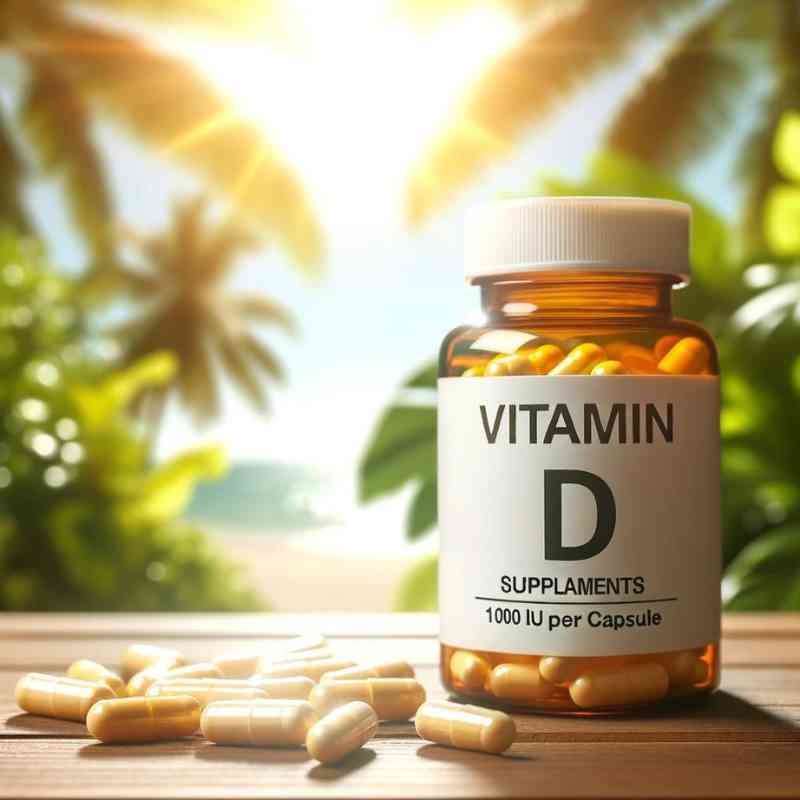
Vitamin D is essential for bone health and overall well-being. Since it’s primarily obtained through sunlight exposure and not present in significant amounts in plant-based foods, consider taking vegan vitamin D supplements. Here’s a table highlighting vegan vitamin D supplements:
Table 12: Vegan Vitamin D Supplements
| Supplement | Vitamin D Content (per serving) |
| Vegan Vitamin D3 | Varies by brand |
| Vegan Vitamin D2 | Varies by brand |
| Vegan Vitamin D Complex | Varies by brand |
Vitamin D supplementation ensures you maintain optimal levels for overall health and athletic performance.
10.3 Creatine for Enhanced Performance
Creatine is a popular supplement among athletes for improving exercise performance and muscle strength. Vegan creatine supplements are readily available. Here’s a table with creatine supplements suitable for vegans:
Table 13: Creatine Supplements for Vegans
| Supplement | Creatine Content (per serving) |
| Vegan Creatine Monohydrate | Varies by brand |
| Vegan Creatine Complex | Varies by brand |
| Micronized Vegan Creatine | Varies by brand |
Creatine supplementation can help you maximize your athletic potential, particularly in high-intensity activities.
Before incorporating any supplements into your regimen, consult with a healthcare professional or registered dietitian to ensure they are suitable for your specific needs and goals.
In the next section, we’ll provide meal planning tips tailored for vegan athletes.
11. Meal Planning Tips for Vegan Athletes
Effective meal planning is the key to sustaining your performance and overall health as a vegan athlete. Here are some valuable meal planning tips tailored to your needs:
11.1 Weekly Meal Prep
Consistency is crucial for success. Dedicate time each week to plan and prepare your meals. Batch-cooking staple foods like grains, legumes, and vegetables can save you time and ensure you have balanced meals readily available.
11.2 Balancing Macronutrients
Pay attention to the balance of carbohydrates, proteins, and fats in your meals. Ensure each meal includes a source of each macronutrient. For example, pair quinoa (carbohydrates) with chickpeas (protein) and avocado (healthy fats) for a well-rounded dish.
11.3 Variety and Taste
Maintain excitement in your diet by exploring different fruits, vegetables, grains, and plant-based proteins. Experiment with herbs and spices to add flavor to your meals. The more varied and tasty your diet, the easier it will be to stick with it.
11.4 Listen to Your Body
Be attuned to your body’s needs. Adjust your meal portions and composition based on your activity levels, goals, and how you feel. Your nutritional needs may vary from day to day.
11.5 Stay Hydrated
Don’t forget the importance of hydration in your meal planning. Include water-rich foods like fruits and vegetables in your diet, and drink enough water throughout the day to stay well-hydrated.
11.6 Seek Professional Guidance
Consider working with a registered dietitian who specializes in vegan nutrition. They can create a personalized meal plan tailored to your athletic goals and ensure you’re meeting your nutrient requirements.
These meal planning tips will help you stay on track with your vegan diet and achieve your athletic objectives. In the next section, we’ll address common concerns that vegan athletes might encounter.
12. Addressing Common Concerns
As a vegan athlete, you may encounter specific challenges and concerns. Let’s address some of the most common ones and provide solutions:
12.1 Meeting Caloric Needs
Vegan diets can be less calorie-dense than omnivorous diets, so it’s important to ensure you’re consuming enough calories to support your activity level. Track your daily intake, and if needed, increase portion sizes or include calorie-dense foods like nuts and seeds.
12.2 Overcoming Digestive Challenges
Transitioning to a vegan diet can sometimes lead to digestive issues due to increased fiber intake. To minimize discomfort, gradually increase your fiber intake, stay well-hydrated, and include foods that are easier to digest, such as cooked vegetables and soaked legumes.
12.3 Social and Psychological Aspects
Social situations and psychological factors can be challenging when following a vegan diet. To navigate these challenges:
- Communicate your dietary choices to friends and family to avoid uncomfortable situations.
- Research vegan-friendly restaurants and options in your area.
- Find a supportive community or online group to connect with like-minded individuals.
- Stay informed about the ethical and environmental reasons behind your choice to stay motivated.
Remember, it’s normal to face obstacles, but with determination and a support system, you can overcome them.
In the next section, we’ll share inspiring success stories from vegan athletes who have thrived on plant-based diets.
13. Success Stories from Vegan Athletes
Hearing about the experiences and achievements of fellow vegan athletes can be incredibly motivating. Here are a few success stories to inspire you on your plant-based athletic journey:
13.1 Venus Williams
The tennis legend Venus Williams adopted a raw vegan diet to manage an autoimmune condition. She credits her diet for improved energy levels and overall health while maintaining a high level of performance on the court.
13.2 Patrik Baboumian
Patrik Baboumian, a world-record-holding strongman, has been a vegan since 2011. He continues to break records in strength competitions while advocating for plant-based living. Baboumian’s success shatters the myth that animal products are necessary for strength and power.
13.3 Tia Blanco
Professional surfer Tia Blanco has been vegan since the age of 16. She attributes her plant-based diet to her success in the sport and her overall well-being. Blanco believes that her vegan lifestyle enhances her endurance and focus while riding the waves.
13.4 Lewis Hamilton
Lewis Hamilton, a seven-time Formula 1 World Champion, transitioned to a plant-based diet in 2017. He often speaks out about the environmental and ethical reasons behind his choice. Hamilton’s continued dominance in Formula 1 demonstrates that plant-based diets can support elite athletic performance.
These success stories highlight that not only is a vegan diet compatible with athletic excellence, but it can also be a catalyst for improved health and ethical alignment. As you embark on your journey as a vegan athlete, remember that you are in excellent company.
In the final section, we’ll summarize the key takeaways from this guide.
14. Conclusion
Congratulations! You’ve embarked on a journey to understand the Vegan Food Pyramid for Athletes, and you now possess a wealth of knowledge to support your athletic pursuits as a vegan. Here are the key takeaways from this comprehensive guide:
- A vegan diet, based on plant foods, can be a powerful choice for athletes, offering benefits for cardiovascular health, recovery, weight management, and ethical and environmental concerns.
- The Vegan Food Pyramid for Athletes emphasizes plant-based staples, macronutrient balance, micronutrient awareness, hydration, and supplements when necessary.
- Prioritize consuming plant-based staples like whole grains, legumes, fruits, vegetables, nuts, and seeds for a strong nutritional foundation.
- Balance your macronutrients by incorporating carbohydrates, proteins, and healthy fats into your meals for energy and muscle recovery.
- Pay attention to essential micronutrients like iron, calcium, vitamin B12, and omega-3 fatty acids to maintain overall health and athletic performance.
- Stay hydrated and ensure proper electrolyte balance, especially during and after workouts.
- Optimize your pre-workout and post-workout nutrition with the right foods and snacks.
- Consider supplements like vegan protein, vitamin D, and creatine to meet specific nutritional needs as a vegan athlete.
- Engage in mindful meal planning, including variety and portion control, to maintain a balanced and enjoyable diet.
- Address common concerns such as caloric intake, digestive challenges, and social aspects of veganism with proactive strategies.
- Find inspiration in the success stories of vegan athletes who have excelled in their respective sports while following plant-based diets.
Your journey as a vegan athlete may present challenges, but armed with knowledge, determination, and a supportive community, you can thrive both in your athletic pursuits and in your commitment to a compassionate and sustainable lifestyle. Remember, your choice to embrace a vegan diet is not just about what you exclude from your plate; it’s about the positive impact you make on your health, the planet, and the lives of animals.
As you continue your athletic journey, may you achieve your goals and inspire others to explore the boundless potential of plant-based living.
Thank you for joining me on this exploration of the Vegan Food Pyramid for Athletes. If you have any questions or need further guidance, don’t hesitate to reach out to a registered dietitian or nutrition expert who specializes in vegan nutrition.
Best of luck on your path to athletic excellence and vibrant well-being!
Further Reading
Here are some additional resources to deepen your understanding of the Vegan Food Pyramid for Athletes and related topics:
- Nutriciously – Vegan Food Pyramid
- Explore a comprehensive guide to the Vegan Food Pyramid, with detailed information on plant-based nutrition for athletes and practical tips for following a vegan diet.
- MDPI – Nutrients Journal Article
- Access a research article published in the Nutrients journal that discusses the nutritional aspects of vegan diets for athletes and sportspeople.
- ProVeg – The Pros of a Vegan Diet for Athletes
- Learn about the advantages of a vegan diet for athletes, including its potential health benefits and positive impacts on athletic performance.
FAQs
Is a vegan diet suitable for all types of athletes?
Yes, a well-planned vegan diet can meet the nutritional needs of athletes engaged in various sports and activities. It requires careful planning to ensure adequate intake of essential nutrients.
What are some common nutrient concerns for vegan athletes?
Vegan athletes should pay attention to nutrients like protein, iron, vitamin B12, calcium, and omega-3 fatty acids. Meeting these nutrient requirements is essential for performance and overall health.
Are there vegan supplements specifically designed for athletes?
Yes, there are vegan-friendly supplements tailored to the needs of athletes, including vegan protein powders, creatine supplements, and vitamin D supplements. These can help fill potential nutrient gaps.
How can I maintain energy levels during long training sessions on a vegan diet?
Consuming a mix of carbohydrates, such as whole grains and fruits, before and during exercise can provide sustained energy. Additionally, staying well-hydrated is essential for maintaining stamina.
Are there any famous vegan athletes who have achieved significant success?
Yes, there are several high-profile vegan athletes, including Venus Williams (tennis), Patrik Baboumian (strongman), Tia Blanco (surfing), and Lewis Hamilton (Formula 1 racing), who have excelled in their respective sports while following plant-based diets.

Hi! My name is Hellen James, and I’m a vegan lifestyle enthusiast. I’ve been living the vegan lifestyle for over 10 years now, and it’s been one of the best decisions I’ve ever made. The food is amazing, the community is incredible, and there’s no way I could go back after experiencing all this firsthand.

